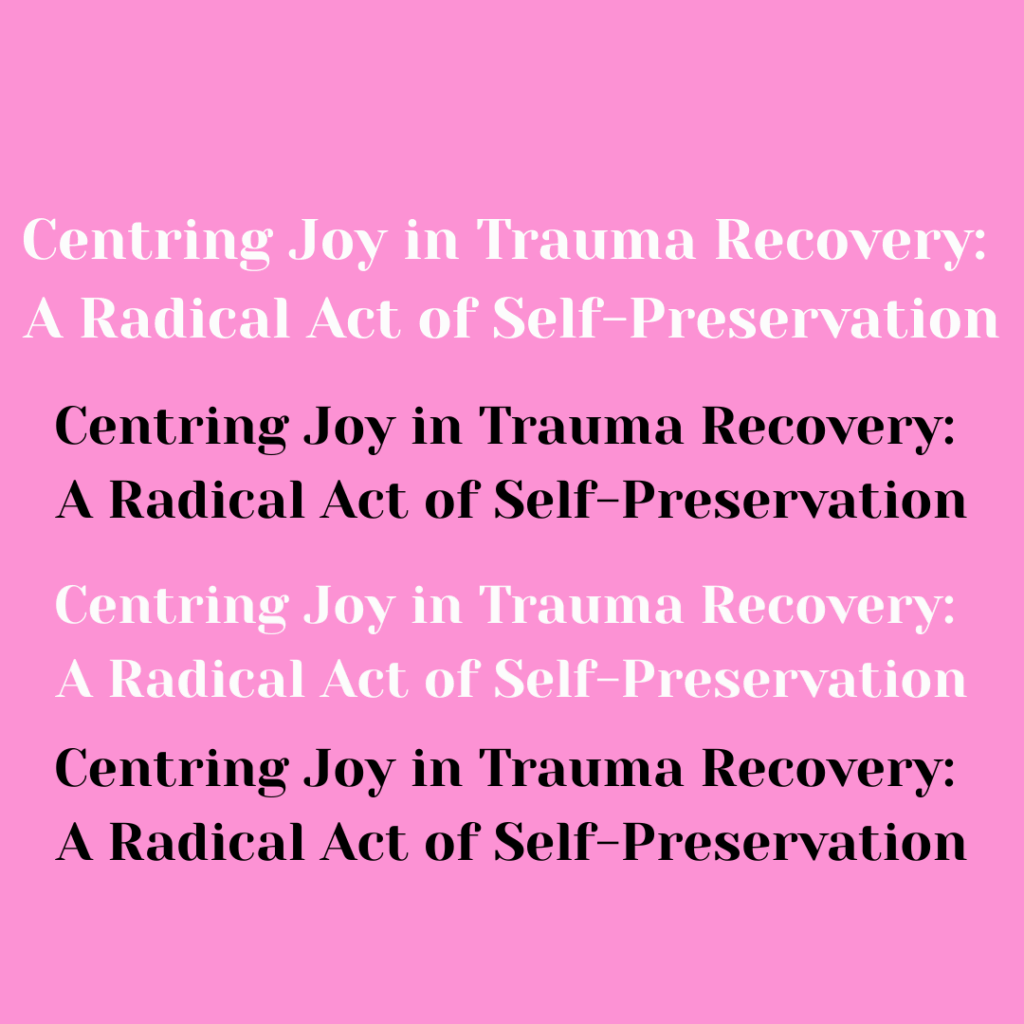Joy is not a privilege, it’s a right. It’s a state of mind that everyone should experience, especially those from marginalized communities. Although joy may feel fleeting, when we centre it as a daily practice, we leave room for endless possibilities.
Marginalized communities encounter systemic injustices daily in the form of poverty, racism, gender-based oppression and colonization. Healing from systemic injustice through joy is a therapeutic process. Collective healing processes are not a straight line. They will involve revisiting unpleasant spaces from history to present-day realities. Nonetheless, we can cultivate joy and use it as an act of resistance and reclamation.
The costs of systemic injustice
Continuously being exposed to and tackling systemic injustices will slowly erode the energy that joy can bring. Economic systems and social barriers have systems in place that suppress joy for marginalized people. From the criminalization of Black bodies to the erasure of Indigenous joy, the oppression is impactful. Bouts of trauma, chronic stress, and intergenerational wounding can cost many people internalized oppression and triggers to their mental health.
But on the flip side, Black and Indigenous communities are known for using joy as an act of resistance. This stance holds a power that keeps oppression at bay. Whether it’s via music, dance, art or communal gatherings like carnivals or powwows, joy is always the centre mark. Using examples from our cultural roots, tapping into unadulterated joy is a radical act of self-preservation.
Consider joy as a healing tool
Finding hope and gratitude during difficult times is a sure way to maintain your mental health. Joy as a trauma response encourages connection with like-minded people. In communal safe spaces, the ability to be aware and celebrate in unison with collective joy is a natural booster. Encouraging and elevating positive emotions can help reduce stress and cortisol and increase resilience. It improves mental health overall, proving that reclaiming your joy can shift trauma cycles for the better.
Here are a few ways to practice joy as a trauma response:
- Keep a journal: Writing can be a therapeutic tool when done with intention. Purchase a beautiful notebook and a fancy pen. Find a quiet spot and, for inspiration, use positive prompts. This exercise will encourage positive reflection. Focus on making time to form a daily habit, sharing your wins for the week.
- Practice self-care: We’ve all had the experience of running on fumes, knowing well that a pause may be due. We’re no good to each other if we’re not good to ourselves. Self-care comes in many forms. Perhaps it’s turning off your phone for the evening and relaxing with a book or heading out for some spa time. Whatever steps are taken, ensure it’s used as a guide for rejuvenation.
- Slow down and be present: This point goes hand-in-hand with self-care. Slowing down and being present creates room to seek and enjoy moments of joy. Savour the experiences, big and small. When was the last time you celebrated a win? Have you had a weekend to yourself lately? It’s always the little things that go a long way.
Cultivating joy amid systemic injustice is a bold statement in itself. Practice mindfulness and connections. While it’s difficult to stay clear of world events and daily stressors, finding joyful outlets makes all the difference. From joy-centred activism to simple community-driven healing spaces, find something that is in tune with your practice. Remember, joy is resistance, a source of strength, and a healing tool. Reclaim that joy by any means necessary and reaffirm it. No one can take that away from you.
Struggling to reclaim your joy? Contact Ancestral Memory Therapy for guidance. We’re happy to serve our community and discuss how joy is an integral part of trauma recovery.

